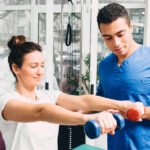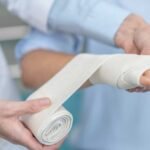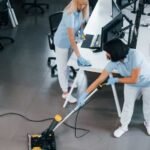
Inpatient drug rehabilitation programs offer individuals struggling with substance use disorders a structured environment conducive to recovery. Beyond addressing the immediate need to overcome addiction, these programs play a pivotal role in fostering the development of essential life skills. Individuals in rehab often find themselves in a setting that encourages learning, self-reflection, and personal growth. These life skills are vital not only for maintaining sobriety but also for enhancing overall quality of life. We will explore how inpatient drug rehab facilitates life skills development through therapeutic activities, social interaction, and educational programs, ultimately preparing individuals for a healthier future.For more information on drug rehabilitation in Melbourne you can find out more at The Hader Clinic.
Therapeutic Activities That Promote Skill Development
Consider Pacific Ridge inpatient drug rehab centers incorporating various therapeutic activities to help individuals develop critical life skills. These activities include cognitive-behavioral therapy (CBT), group therapy, and mindfulness practices. Through CBT, participants learn to identify and challenge negative thought patterns that contribute to substance use. This process enhances critical thinking skills and helps individuals develop coping mechanisms for stress and emotional triggers. Group therapy fosters communication and teamwork as participants discuss their experiences and support one another in their recovery journeys. These interactions build trust among peers and promote the sharing of diverse perspectives, which can enrich personal insight. Additionally, mindfulness practices encourage individuals to become more self-aware, helping them manage cravings and impulses. By actively participating in these therapeutic activities, individuals acquire tools that can be applied to various aspects of their lives beyond rehab.
Building Healthy Relationships Through Social Interaction
Another significant aspect of life skills development in inpatient rehab is building healthy relationships. Substance use often leads to strained connections with family, friends, and colleagues. In a controlled setting, individuals can practice social skills, such as active listening, empathy, and conflict resolution. The communal living environment encourages residents to interact regularly, which can lead to the formation of supportive friendships. These connections are crucial as they provide a network of encouragement during and after treatment.
Additionally, staff members are role models, demonstrating healthy communication techniques and relationship-building skills. Through group discussions and team-building exercises, individuals learn how to navigate social dynamics more effectively, fostering a sense of belonging and community. This experience is invaluable as it helps individuals cultivate supportive relationships that can be maintained after leaving the rehab facility.
Educational Programs to Enhance Life Skills
Inpatient drug rehab facilities often include educational programs that focus on life skills training. These programs typically cover various topics, including financial management, job readiness, and effective communication. Learning how to manage personal finances is essential for individuals who may have struggled with irresponsible spending patterns associated with substance use. Workshops that teach budgeting, saving, and financial planning equip participants with the knowledge to handle their finances responsibly in the future. Additionally, job readiness programs focus on resume building, interview techniques, and workplace behavior. These skills are vital for re-entering the workforce and can significantly impact an individual’s self-esteem and sense of purpose. Effective communication is also addressed, teaching individuals how to express their thoughts and feelings clearly, which can enhance relationships personally and professionally. By participating in these educational initiatives, individuals gain valuable knowledge and build confidence in their abilities to manage everyday life.
Developing Coping Mechanisms for Stress and Triggers
One of the most critical aspects of life skills development in rehab is cultivating effective coping mechanisms. Substance use often serves as a maladaptive coping strategy for dealing with stress, anxiety, and emotional pain. Inpatient rehab programs focus on teaching individuals healthier ways to manage these feelings. Through art or writing, participants learn about various coping strategies, mindfulness techniques, exercise, and creative expression. These methods provide individuals with practical tools to handle stress and prevent relapse.
Additionally, they encourage emotional regulation, helping individuals identify their triggers and develop personalized plans to cope with them. This proactive approach not only aids in recovery but also prepares individuals for challenges they may face in everyday life. By learning how to respond to stress without substance use, individuals enhance their resilience and adaptability, which are crucial skills for long-term success.
Cultivating Responsibility and Accountability
Inpatient drug rehab fosters a sense of responsibility and accountability among participants. The structured rehab environment provides individuals with specific expectations regarding their behavior, activity participation, and schedule adherence. Committing to these responsibilities teaches individuals the importance of following through on their commitments, which is a vital life skill. Group therapy sessions often require participants to share their progress and setbacks, fostering an environment of accountability. This communal approach encourages individuals to take ownership of their actions and understand how their choices impact themselves and others.
Additionally, many programs incorporate individual goal-setting, allowing participants to set personal objectives for their recovery journey. As they work toward achieving these goals, individuals develop a greater sense of responsibility toward themselves and their recovery. This newfound accountability can be empowering, as it helps individuals recognize their capacity for change and growth.
Inpatient drug rehab serves as a transformative experience for individuals seeking to overcome addiction. Life skills development is a crucial aspect of this process, encompassing therapeutic activities, social interaction, educational programs, coping mechanisms, and accountability. These skills facilitate recovery and enhance individuals’ ability to lead fulfilling lives beyond rehab. As participants engage in various activities and learn from their experiences, they emerge with a renewed sense of purpose, equipped to tackle the challenges of everyday life. By prioritizing life skills development, inpatient drug rehab programs empower individuals to embrace sobriety, build healthy relationships, and achieve personal growth, ultimately fostering a brighter and more hopeful future.





